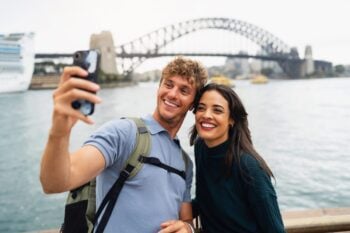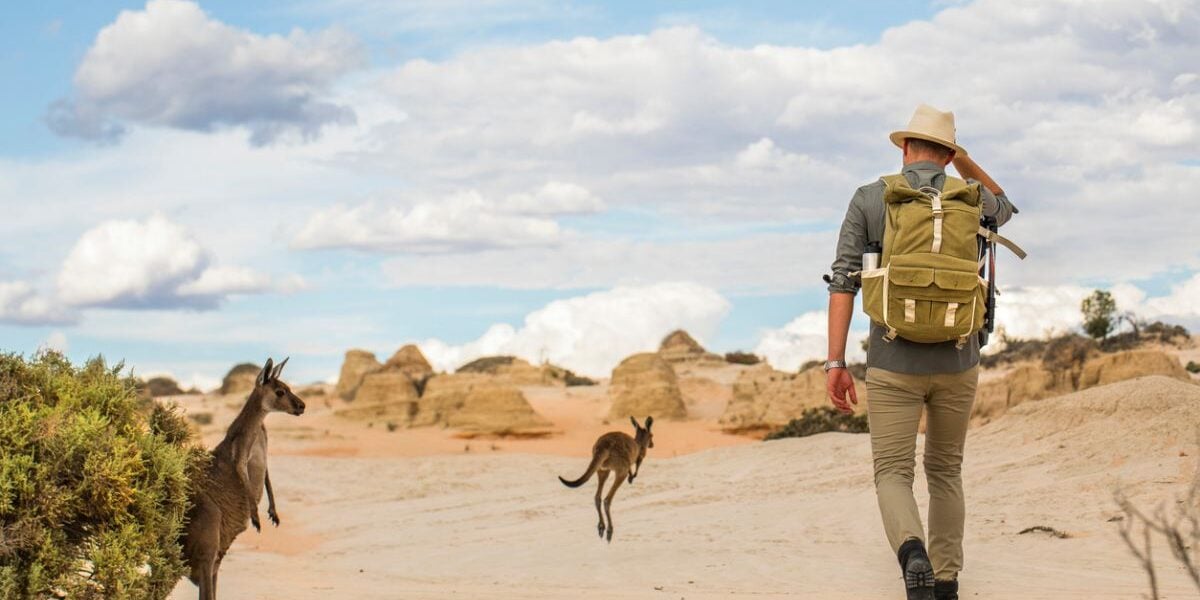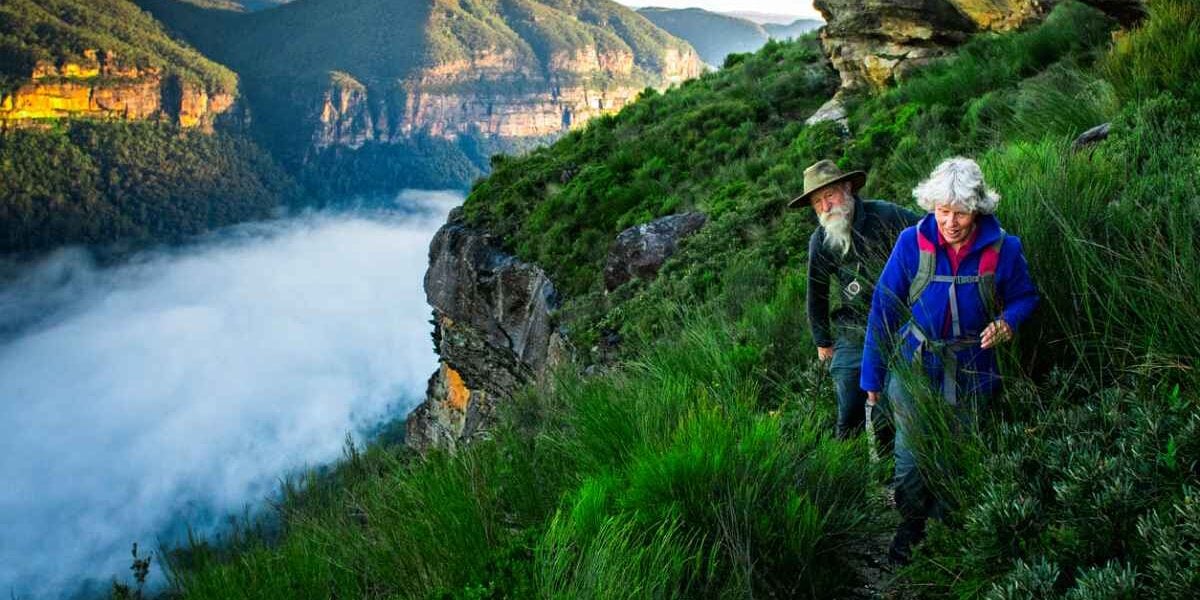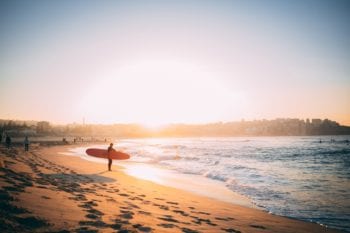
Find the Best Coverage for Your Trip Down Under
 Visiting Australia is a dream for many travelers, offering stunning landscapes, rich culture, unique wildlife, and vibrant cities. But alongside these natural wonders come certain risks, which is why travel insurance is a smart and essential part of planning your trip.
Visiting Australia is a dream for many travelers, offering stunning landscapes, rich culture, unique wildlife, and vibrant cities. But alongside these natural wonders come certain risks, which is why travel insurance is a smart and essential part of planning your trip.
Discover all you need to know about travel insurance for Australia, including what coverage to look for, how to choose a plan, and key travel tips to help you stay safe during your adventure Down Under.
Visiting Australia is a dream for many travelers, offering stunning landscapes, rich culture, unique wildlife, and vibrant cities. But alongside these natural wonders come certain risks, which is why travel insurance is a smart and essential part of planning your trip.
Discover all you need to know about travel insurance for Australia, including what coverage to look for, how to choose a plan, and key travel tips to help you stay safe during your adventure Down Under.

Find the Best International Travel Insurance
- Get multiple quotes and coverage options
- Travel Medical, Trip Cancellation & more options available
- Find the best plan for your needs and budget
Key Takeaways
- Travel insurance is strongly recommended, as Australia’s high-quality healthcare can be costly for non-residents without coverage, especially in private hospitals.
- Choose a policy that includes emergency medical care, evacuation, trip cancellation or delays, lost or stolen baggage, and repatriation of remains.
- Consider add-on coverage for high-risk activities common in Australia, such as surfing, scuba diving, and bushwalking in remote areas.
- Most policies exclude pre-existing conditions, elective care, and incidents involving alcohol, drugs, illegal acts, or reckless behavior (e.g., unlicensed driving or disturbing wildlife).
- Top travel medical plans include IMG Patriot Platinum and GeoBlue Voyager
- Top trip cancellation plans include Trawick Safe Travels AnyReason and World Nomads Travel Insurance
Do I Need Travel Insurance for Australia?
While travel insurance is not mandatory for visitors to Australia, it is highly advisable. Australia’s healthcare system typically doesn’t cover international travelers, even in emergencies.
Australia’s government travel authority encourages all visitors to have travel insurance for Australia that includes medical coverage. In fact, they advise, “If you can't afford travel insurance, you can't afford to travel.”
Travel Insurance for Common Risks in Australia
Australia is known for being a traveler-friendly destination, and according to the 2025 Safety Index by Global Residence Index, it is the 23rd safest country in the world. That said, having travel insurance is still highly advisable for several important reasons.
Traveling to and from Australia often requires long flights with multiple connections, increasing the risk of disruptions like delayed or canceled flights and lost luggage. Given the long distance, expensive airfares, and overall travel expenses, these disruptions can become costly. With Australia travel insurance, you’ll be covered for lodging, transportation, and personal belongings in case of such travel crises.

Moreover, the considerable time and expense required to reach Australia mean that most tourists spend anywhere from 10 to 17 days there. If an emergency happens at home or you experience a personal crisis while abroad, being away for that long can be an expensive and stressful setback. In such cases, trip cancellation insurance can help protect your investment. It ensures you're covered if you can’t travel or need to cut your trip short.
Australia is also famous for its outdoor sports and activities, from surfing on its world-renowned beaches to hiking in the rugged outback. These exciting experiences are a major draw for travelers, but they also carry a risk of injury. Whether you're diving in the Great Barrier Reef or exploring national parks, accidents can happen. That’s why having travel insurance with medical coverage is especially important.
Since medical care in Australia can be expensive for visitors, having this coverage ensures you're protected if you're seriously injured and provides support in more serious cases, such as repatriation.
Read More: Is Travel Insurance Worth It?
What Does Australia Travel Insurance Cover and Exclude?
Travel insurance for Australia typically includes coverage for emergency medical care, evacuation, trip cancellation or delays, lost or stolen baggage, and repatriation of remains. It helps protect you from unexpected expenses while exploring the country’s vast landscapes and vibrant cities.
However, most policies exclude pre-existing conditions, elective treatments, routine care, and injuries from high-risk activities like scuba diving or bushwalking, unless you’ve added an adventure sports rider. Claims may also be denied if incidents involve alcohol, drugs, reckless behavior, or illegal acts.
Read more about the various benefits of International Travel Insurance
 Follow Aussie laws! Australia enforces strict safety regulations, and your insurance won’t cover injuries caused by illegal or risky behavior, such as driving without a license, disturbing protected wildlife, or drinking too much before surfing. So stay sober until you finish your activities!
Follow Aussie laws! Australia enforces strict safety regulations, and your insurance won’t cover injuries caused by illegal or risky behavior, such as driving without a license, disturbing protected wildlife, or drinking too much before surfing. So stay sober until you finish your activities!
Cruising in Australia Calls For Travel Insurance
Many travelers visit Australia for cruise experiences, which offer an exciting way to see iconic destinations in a short time or explore remote regions like Western Australia and the Kimberley region.
However, cruises come with unique risks. For example, travel delays and lost luggage on the way to your boat can cause serious problems, as you need to arrive on time to board! Additionally, Australia's tropical storms can disrupt your time on the water in unexpected ways.
Cruise ships also provide limited medical care, and in case of an emergency, you may need to be transferred to a hospital. In this case, having coverage can ensure you're protected from the costs of delays, cancellations, or medical emergencies, giving you peace of mind throughout your trip.
Read More: Cruise Insurance

Don't get caught in a time warp! When you travel to Australia, you might cross the International Date Line, skipping a whole day forward or backward! Double-check that the travel dates on your tickets align with your policy dates. And if you're unsure, it's always a good idea to add an extra day to your policy.
How Much is Travel Insurance for Australia?
The cost of travel insurance for Australia can vary depending on several factors, including your age, health, coverage level, and whether you have pre-existing conditions or add extra protection for high-risk activities like scuba diving, bushwalking, or skydiving.
Generally, older travelers face higher premiums due to increased health risks, with insurers especially viewing those over 65 as higher-risk customers.
For instance, a 25-year-old traveling from the US to Australia for two weeks might pay between $10 and $30 for a basic travel medical plan, while a 55-year-old could expect to pay around $40 to $70.

You may also notice that coverage for Australia can be more expensive than other destinations. This is because plans need to cover the higher costs of Australian medical care and emergency repatriation.
Given the variety of options available, it's wise to compare travel insurance plans to find one that best fits your budget and coverage needs.

Keep costs down by choosing a plan with a higher deductible. Most insurers let you set this when requesting quotes. However, ensure your policy still includes coverage for essentials like repatriation, medical evacuation, emergency medical treatment, and trip cancellation, as these are particularly important in Australia.
How to Choose the Right Travel Insurance for Australia
Here are four key questions to help you select the right travel insurance for your trip to Australia.
Each question highlights important keywords (in italics) to look for when reviewing policy details. These keywords will help you match the coverage to your trip plans and specific needs.
1. What are your health concerns while visiting Australia?
If you have pre-existing conditions, contact your insurer to ensure they are covered. A visit to a doctor or dentist can cost hundreds of dollars, and hospital stays for emergencies or illnesses can easily run into the thousands.
Unless you're prepared to pay out of pocket, make sure you have comprehensive emergency medical care coverage. Additionally, consider repatriation coverage, which can help you return home after an emergency.
2. What are you bringing to Australia?
Your luggage may be worth more than usual when traveling Down Under. You may bring valuable items like a laptop for remote work, sports or scuba equipment, or photography gear. In this case, theft and loss insurance is important, and you might want specific coverage for high-value items.
3. What activities will you be doing in Australia?
Whether you plan to explore Australia’s cities, take a tour or cruise, or engage in more adventurous activities, it's important to choose the right coverage. If you're planning to participate in adventure sports like snorkeling, scuba diving, windsurfing, long-distance cycling, or hiking, ask about coverage for extreme sports or adventure travel.
4. What’s the weather likely to be like in Australia?
Natural disasters like tropical storms, flooding, and wildfires can disrupt travel plans. For example, in March 2025, multiple cruise ships were trapped at sea by tropical storm Alfred, impacting thousands of travelers. Check your insurance policy to ensure it includes coverage for natural disasters and weather-related disruptions.
The Best Travel Insurance for Australia
Below are our top travel insurance recommendations for Australia, each tailored to cover various needs – from medical emergencies to trip protection and more.
The Best Travel Health Insurance for Australia
GeoBlue's Voyager Travel Insurance plan is an excellent choice for U.S. citizens visiting Australia. It is affiliated with Blue Cross Blue Shield and provides access to a premium network of doctors and hospitals worldwide.
GeoBlue also offers 24/7 customer support, telemedicine, and prescription drug coverage. The plan is especially ideal for older U.S. citizens, offering the highest level of coverage for seniors traveling abroad.

GeoBlue Voyager Plan
- For U.S. citizens up to age 95
- Includes pregnancy coverage, baggage loss, trip interruption & more
- 24/7/365 service and assistance
The Best Trip Cancellation Insurance for Australia
With Trawick Safe Travels AnyReason, U.S. citizens and residents can visit Australia, knowing they have both flexibility and financial protection against unexpected changes to their trip itinerary.
This plan offers one of the best Cancel for Any Reason (CFAR) benefits at no additional cost. Trawick will reimburse you for up to 75% of your prepaid, non-refundable trip expenses if you have to cancel your trip for reasons beyond the standard covered events.

Safe Travels AnyReason
- Available to US residents traveling within the United States and abroad
- 100% Trip Cancellation and Trip Interruption Coverage
- Emergency Evacuation and Repatriation
- 75% of Cancel for Any Reason (CFAR) is included within 7 days of trip deposit
World Nomads Travel Insurance is a top choice for non-U.S. citizens seeking a travel plan with trip cancellation coverage. Policyholders can recover non-refundable expenses such as flights, accommodations, and prepaid activities.
Beyond trip cancellation coverage, World Nomads also provides coverage for over 200 adventure activities, emergency medical expenses, emergency evacuation and repatriation, and protection against lost or stolen baggage and personal belongings.

World Nomads Travel Insurance for Trip Cancellation
- Trip cancellation and interruption benefits included
- Emergency medical transport and repatriation
- Baggage and gear cover
- Optional Cancel For Any Reason (CFAR) coverage available for U.S. citizens/residents (Explorer and Epic Plans)
How to Prepare for Your Adventure
Before jetting off to Australia, it’s important to ensure that your health and safety are well taken care of. The country’s varied climates and expansive natural landscapes require careful planning, and the long distances between regions can pose challenges if your travel plans suddenly change.
By following the guidelines below, you’ll ensure that you meet the necessary medical and insurance requirements while enjoying a safe and memorable trip to Australia.
Medical Preparation for Travel to Australia
Do you need to make any medical preparations before your trip to Australia? What regions of the country will you be visiting, and have you traveled to similar areas before? Will you need to bring any prescriptions or medications with you? Proper preparation is especially crucial if you're heading to Australia’s rural or remote areas, where medical facilities may be limited.
What Vaccinations Do I Need to Travel to Australia?
Australia recommends that visitors be up-to-date on routine vaccinations. If you've been in a yellow fever risk area within six days of arriving in Australia, you must show proof of yellow fever vaccination.
This proof must be in the form of an International Certificate of Vaccination or Prophylaxis (ICVP) from an approved healthcare provider, following World Health Organization (WHO) standards.
Japanese encephalitis, which is spread by mosquitoes, is found in two areas of Australia: the Murray River and the Outer Torres Strait Islands. If you're spending time in these regions, consider getting vaccinated against Japanese encephalitis.

If you plan to engage in outdoor activities such as caving or conservation volunteering, where there’s a risk of bat bites, you might want to consider the rabies vaccine.
While Australia is rabies-free, its bats can carry a similar disease called Australian bat lyssavirus (ABLV), which the rabies vaccine also protects against. Be sure to get the shot at least two weeks before your trip and bring proof of vaccination.
Starting in November 2021, travelers to Australia were required to be vaccinated against COVID-19. However, this requirement was lifted in July 2022. For the latest information regarding COVID-19 and travel to Australia, visit the Department of Home Affairs website.
How to Bring Medications to Australia
You must bring your own medications to Australia. When packing, keep your medications in their original, labeled containers. Additionally, bring a prescription and a note from your doctor that includes the generic name of the medication and an explanation of why you need it. This will help you replace your medications if necessary.
Australia allows you to bring a supply of medication for up to three months. You can also import another three-month supply using Australia's Personal Importation Scheme.

Leave the weed at home! Don’t bring medical cannabis to Australia unless you have a prescription and have been approved for a traveler’s exemption. For more details, see Australia's guidelines on medical cannabis importation and the traveler’s exemption.
How to Access Medical Care in Australia for Visitors
In Australia, visitors can access medical care at public clinics, after-hours clinics, specialists, and hospitals. Larger cities often have clinics specifically designed for travelers, where staff are familiar with the needs of tourists and can provide tailored care.
As a visitor, you will need to pay directly for any medical care you receive in Australia. This includes costs for ambulances, emergency medical airlifts, and hospital stays, all of which can be very expensive. It's important to check with your insurance provider to understand what medical services your policy covers before you travel.
In an emergency, call 000 for ambulance services, but keep in mind that standard travel insurance may not fully cover the costs of these services.
Your travel insurer may also be able to recommend healthcare providers, including doctors, hospitals, and clinics that cater to visitors. Additionally, your home country’s embassy or consulate may provide a list of healthcare professionals specializing in treating travelers. Many embassies also offer assistance with medical emergencies, so it's worth contacting them if you need help finding care.
For non-emergency medical needs, such as routine check-ups or minor illnesses, you can visit a local pharmacy or after-hours clinic. Pharmacies in Australia also provide many over-the-counter medications and can offer advice on common health issues.
Read More: The Australian Healthcare System
Australia Travel Advisory: Important Warnings and Alerts
For the latest Australia travel advisories, sign up for Australia’s Smartraveller service. This is run by Australia’s Department of Foreign Affairs and Trade (DFAT) and provides reviews and updates based on credible information.
You can also check your own country’s travel advisories for any specific alerts related to Australia.
Some of these advisories include:
- United States: US Department of State
- New Zealand: Safe Travel NZ
- United Kingdom: UK Foreign Travel Advice
- Canada: Canada's Travel Advisory (travel.gc.ca)
Read More: A Guide to Travel Advisories, Warnings, and Alerts
Emergency Contact Information for Australia
In Australia, the main emergency service numbers are:
- Police, Fire, and Ambulance: 000
- Mobile Phone Emergency Service: 112 is an alternative for smartphone users to access emergency support.
- Deaf or Hearing Impaired: Dial 106 for text-based emergency support via teletypewriter.
For added convenience, consider installing Australia’s Emergency+ app on your smartphone. The app allows you to call 000 directly, and if you’re unsure of your exact location, it shares your GPS coordinates with emergency services. The Emergency+ app is free and available at both the Google Play Store and Apple App Store.
Embassies in Australia
If you need assistance with lost documents, visa extensions, or other consular services, your country’s embassy can provide support. They may also offer emergency services, including legal assistance, financial help, or support in the case of a medical emergency.
Below are contact details for key embassies in Australia. Many of these nations also offer consular services in other Australian cities:
Canadian High Commission in Canberra
Phone: +(61) 2 6270-4000
Address: Commonwealth Ave, Yarralumla ACT 2600 (next to NZ High Commission noted below)
Embassy of the People’s Republic of China in Canberra
Phone: +(61) 2 6228-3999
Address: 15 Coronation Dr, Yarralumla ACT 2600
Indian High Commission in Canberra
Phone: +(61) 2 9223-2702
Address: 3 - 5 Moonah Pl, Yarralumla ACT 2600
New Zealand High Commission in Canberra
Phone: +(61) 2 6270-4211
Address: 140 Commonwealth Ave, Yarralumla ACT 2600
British High Commission in Canberra
Phone: +(61) 2 6270-6666
Address: 130 Commonwealth Ave, Yarralumla ACT 2600
Embassy of the United States of America in Canberra
Phone: +(61) 2 6214-5600
Address: Moonah Pl, Yarralumla ACT 2600
Notably, many embassies offer emergency services outside normal working hours. If you have an urgent issue, you can contact the embassy for after-hours assistance.

Respect Aboriginal culture when visiting Australia. Every place in the country is the ancestral home of an Aboriginal group or tribe. Signs and local guides provide information on customs to follow as a respectful visitor. For example, Uluru has specific guidelines for visitors to honor its cultural significance.
10 Australia Travel Tips for a Safe and Enjoyable Trip
Australia is an incredible travel destination, ranking 19th out of 163 countries in the 2024 Global Peace Index and the second safest country to travel to in 2025.
The country offers unique wildlife, vast landscapes, and vibrant cities that will make any trip unforgettable. However, like anywhere, it's important to stay informed and follow common-sense measures to ensure your safety.
With this in mind, here are 10 essential tips to remember when traveling to Australia:
1. Adjust to Jet Lag Before Driving
Traveling to Australia means crossing multiple time zones, with a difference of up to 10 hours from Europe or North America. This can lead to jet lag, affecting your sleep, concentration, and reaction time. As a result, you may misplace items, become ill more easily, or struggle with tasks like driving.
If you're arriving from North America, remember that Australians drive on the left side of the road. Jet lag can make it even harder to adjust, increasing the risk of mistakes. To stay safe and alert, give yourself a day to recover before driving long distances.
2. Stay Aware of Your Surroundings
Although Australia is generally a safe destination, it's important to stay cautious, especially at night. In some cities, nightlife venues such as dance warehouses, after-hours clubs, and live music venues are often located far from downtown, making transportation back a concern.
Because these areas can be isolated, with few people around, finding a taxi or rideshare may feel unsettling. To stay safe, always plan your route in advance, use licensed taxis or rideshare services, and avoid lingering alone in deserted areas.

If you're staying in a rural area, lock your doors and keep valuables in your lodging rather than in your vehicle. Rental cars, especially in remote parking lots near tourist attractions, can be targets for break-ins. To stay protected, consider travel insurance that covers theft and loss.
3. Pack Smart for Australia’s Unpredictable Weather
Australia's weather can be highly unpredictable, especially in remote areas. Desert regions like Alice Springs can exceed 100°F (38°C) in summer with intense dry heat but drop sharply at night. Tropical areas like Queensland may also experience sudden, monsoon-like rains after a sunny start to the day.
Pack lightweight, moisture-wicking fabrics to stay cool during the day and warmer layers for the evening. A wide-brimmed hat and plenty of water will help you stay hydrated and shielded from the sun. In areas with unpredictable rain, like the tropical north, a waterproof jacket or poncho is a good idea, so you're always ready if there's a sudden downpour.
4. Stay Informed with Australian Weather Advisories
Australia’s weather can be extreme and unpredictable, ranging from scorching heatwaves and sudden storms to tropical cyclones and devastating bushfires. To stay safe, regularly check the Australian Bureau of Meteorology (BOM) for weather updates, especially if you plan to travel to remote areas.
Local emergency services and wildlife apps like "Fires Near Me" provide real-time alerts to keep you informed about potential hazards. Additionally, having travel insurance with natural disaster coverage is essential. It can cover evacuation costs, reimburse trip cancellations, and cover medical expenses related to weather emergencies, ensuring you have protection in unexpected situations.
5. Protect Yourself from Harsh Sunlight
Visitors to Australia are often shocked at how quickly they can get sunburned due to the country's strong UV rays. The local saying "slip, slop, and slap" serves as a reminder to slip on a shirt, slop on sunscreen, and slap on a hat. For example, if you're visiting places like Bondi Beach or exploring the Outback, the sun can be intense even if it's cloudy, making sun protection essential.
Even though a good health insurance plan will cover emergency care for severe sunburns, you'll still experience pain and discomfort, which can ruin your trip. For instance, a sunburn at iconic locations like Uluru or the Great Barrier Reef can not only be painful but may also interfere with outdoor activities like hiking or swimming. So, protect your skin by wearing SPF 50+ sunscreen, seeking shade, and wearing protective clothing while outdoors.
6. Watch Out for Dangerous Wildlife
Australia is famous for its wildlife, which is often venomous, poisonous, and dangerous. To avoid snakes and spiders, always wear shoes or sandals, and shake out your clothes and footwear before putting them on. When swimming, watch out for jellyfish, sharks, and saltwater crocodiles, especially in remote areas.

You should also be aware of mosquitoes, sandflies, and other stinging insects – even some ants can deliver painful stings! Protect yourself by wearing closed-toe shoes, long sleeves, and pants and using insect repellent. If an insect bite becomes swollen or infected, seek emergency care immediately. A comprehensive travel health insurance plan typically covers injuries caused by wildlife.
7. Choose Safe Spots for Swimming and Boating
When enjoying Australia’s beaches and rivers, always swim at beaches with lifeguards and other people. If a location is empty, it could indicate potential hazards like dangerous currents, contaminated water, or the presence of sharks or crocodiles.
If you rent jet skis, kayaks, or other water equipment, make sure to follow safety instructions and local laws. Always wear a life jacket and avoid venturing into unfamiliar waters alone. To stay fully protected, consider adding adventure sports coverage to your travel insurance plan.
8. Prepare for Safe Outback Driving
Driving in the Outback requires careful planning. Bring extra fuel, at least 4 liters of water per person per day, and non-perishable food. Always inform someone about your route and expected arrival time.
Watch for hazards like rocks, loose gravel, and wildlife like kangaroos, especially at night. Be sure to have comprehensive vehicle insurance that covers accidents and wildlife collisions. It's also wise to carry a spare tire, jack, and basic emergency tools. Renting a 4WD vehicle is wise for tackling rough terrain safely.

Veggie lovers, beware! Australia has strict biosecurity rules. If you try to bring fresh fruit or vegetables into the country, you could face a fine of over $4,000 USD. Australian travel insurance won't cover this fine, so it's best to avoid bringing food or only bring food in a sealed commercial package.
9. Stay Safe When Hiking or Tramping
Hiking in Australia's Outback or natural parks requires extra caution. Always inform someone about your hiking route and estimated return time. Bring more water and food than you think you’ll need, and carry first aid supplies.
Consider renting a satellite phone or personal locator beacon for longer or more remote hikes for emergencies. It’s also advisable to purchase Emergency Evacuation Insurance, which can cover the cost of transporting you to a medical facility if needed.
10. Pack High-Value Purchases Securely
Many visitors to Australia buy valuable items, such as gemstones, quality watches, or unique Aboriginal art. Always pack high-value items securely in your carry-on luggage and avoid placing them in checked bags. Thieves often target valuables, leaving the rest of your luggage untouched.
Make sure that your travel insurance covers any expensive purchases. You can contact your insurer while traveling and adjust your coverage as needed.
Read More: 10 Common Travel Scams to Avoid Abroad
Travel Smart and Stay Covered – Australia's Wonders Await!
It’s true that Australia’s unique climate and diverse landscapes call for some preparation, both before you embark on your journey and as you explore the country. But the effort is worth it for the unforgettable experiences that await you Down Under.
Whether you're soaking up the sun on the Gold Coast or staying at a historic Outback station, Australia offers adventures like no other. You could cuddle koalas in the morning, dine like an epicure on a Sydney evening, feel your heart soar as you watch the sunrise at Uluru, or stargaze under the Southern Cross at a storyteller’s fireside.
By having the right travel insurance, you can focus on creating lasting memories instead of worrying about potential mishaps. So, are you ready to experience all that Australia has to offer?
Get a free quote now and find the best coverage for your Aussie adventure!

Find the Best International Travel Insurance
- Get multiple quotes and coverage options
- Travel Medical, Trip Cancellation & more options available
- Find the best plan for your needs and budget
Frequently Asked Questions
To enter Australia, you’ll need a valid passport and an Australian visa, such as an Electronic Travel Authority (ETA) or eVisitor visa. Visa requirements vary depending on your nationality and purpose of visit, so it's important to check the specific conditions before traveling.
You may also need to meet additional health or COVID-19-related requirements, depending on current guidelines. For more details, visit the Australian Border Force’s official site.
Yes, Australia is very safe for travelers, ranking 19th out of 163 countries in the 2024 Global Peace Index and the second safest country to travel to in 2025.
While there are risks related to climate and wildlife, taking basic precautions and having travel insurance ensures a safe experience.
No, travel insurance is not mandatory, but it’s highly advisable. Australia’s healthcare system doesn’t cover international visitors, so, without insurance, you may face high medical costs in emergencies.
Additionally, embassies and local governments are not obligated to assist with travel issues, making insurance a crucial safeguard.
Yes, you can purchase travel insurance after arriving in Australia, but it’s best to buy it before you depart. Buying coverage after arrival may limit the types of risks covered, such as trip cancellation.
Additionally, some insurers may not provide coverage for pre-existing conditions or incidents that occurred before purchasing the insurance.
Read More: Can I Buy Travel Insurance After Departure?
Australia offers excellent healthcare, but you may need medical evacuation to a nearby facility in remote areas, especially in rural areas or while on a cruise.
Emergency medical evacuation can be costly, so it’s essential to ensure your travel insurance covers this. Always verify with your insurer that your policy includes medical evacuation.
Read More: Medical Evacuation Insurance
Yes, many insurers allow you to extend your travel insurance while you're abroad. If you need to extend your coverage, contact your insurer as soon as possible to make the necessary arrangements. Ensure that the extension covers any additional risks you may face while staying longer in Australia.
Read More
Author: Emily Cotlier is a senior editor at International Citizens Insurance. She has made the move from the U.S.A. to New Zealand. For International Insurance, she clarifies international visa and immigration requirements, shares travel resources, and advises on relocation challenges. She’s traveled through five continents and Oceania, and she still loves to travel both in Aotearoa New Zealand and around the world.



